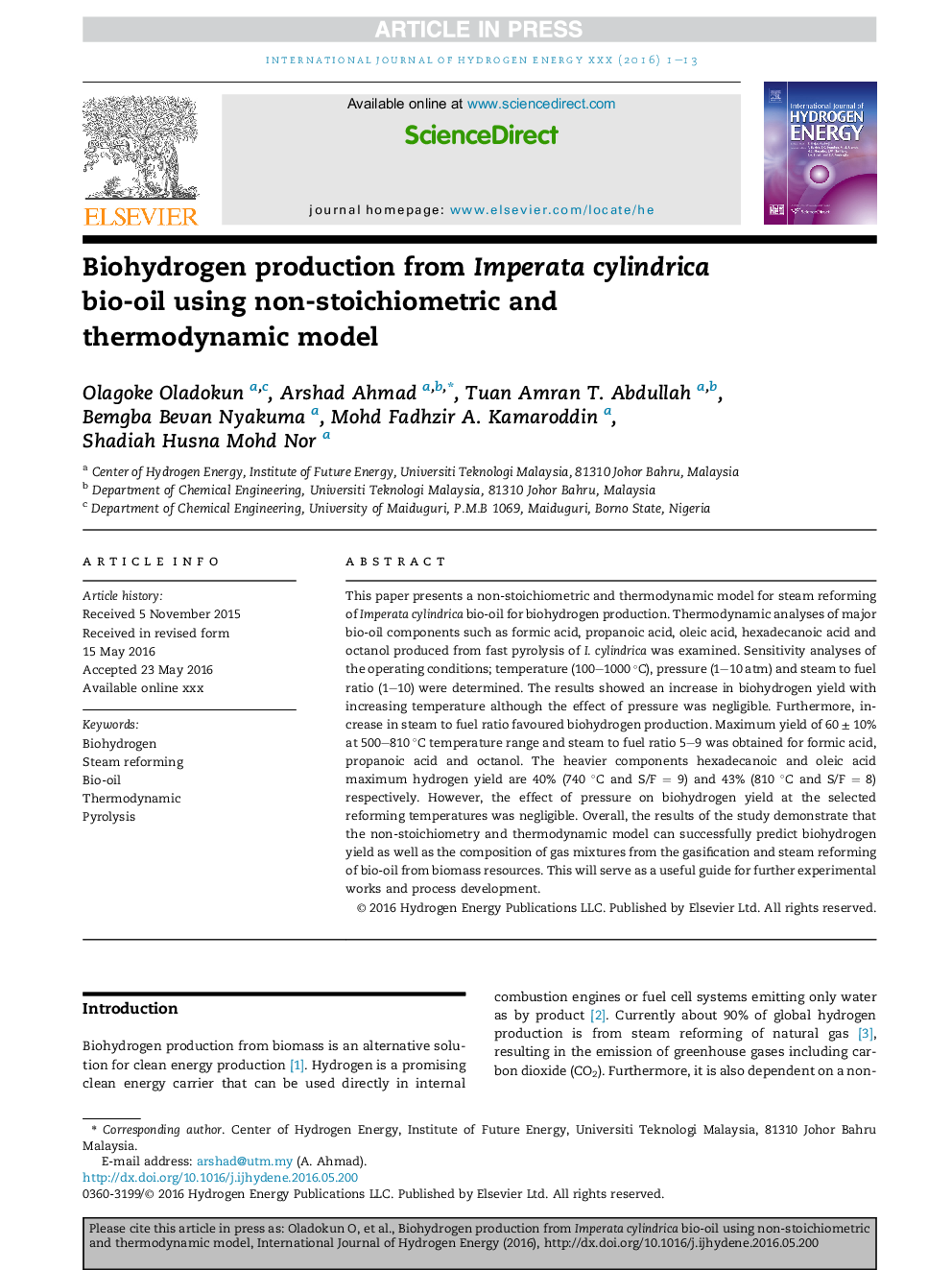| Article ID | Journal | Published Year | Pages | File Type |
|---|---|---|---|---|
| 5147826 | International Journal of Hydrogen Energy | 2017 | 13 Pages |
Abstract
This paper presents a non-stoichiometric and thermodynamic model for steam reforming of Imperata cylindrica bio-oil for biohydrogen production. Thermodynamic analyses of major bio-oil components such as formic acid, propanoic acid, oleic acid, hexadecanoic acid and octanol produced from fast pyrolysis of I. cylindrica was examined. Sensitivity analyses of the operating conditions; temperature (100-1000 °C), pressure (1-10 atm) and steam to fuel ratio (1-10) were determined. The results showed an increase in biohydrogen yield with increasing temperature although the effect of pressure was negligible. Furthermore, increase in steam to fuel ratio favoured biohydrogen production. Maximum yield of 60 ± 10% at 500-810 °C temperature range and steam to fuel ratio 5-9 was obtained for formic acid, propanoic acid and octanol. The heavier components hexadecanoic and oleic acid maximum hydrogen yield are 40% (740 °C and S/F = 9) and 43% (810 °C and S/F = 8) respectively. However, the effect of pressure on biohydrogen yield at the selected reforming temperatures was negligible. Overall, the results of the study demonstrate that the non-stoichiometry and thermodynamic model can successfully predict biohydrogen yield as well as the composition of gas mixtures from the gasification and steam reforming of bio-oil from biomass resources. This will serve as a useful guide for further experimental works and process development.
Related Topics
Physical Sciences and Engineering
Chemistry
Electrochemistry
Authors
Olagoke Oladokun, Arshad Ahmad, Tuan Amran T. Abdullah, Bemgba Bevan Nyakuma, Mohd Fadhzir A. Kamaroddin, Shadiah Husna Mohd Nor,
